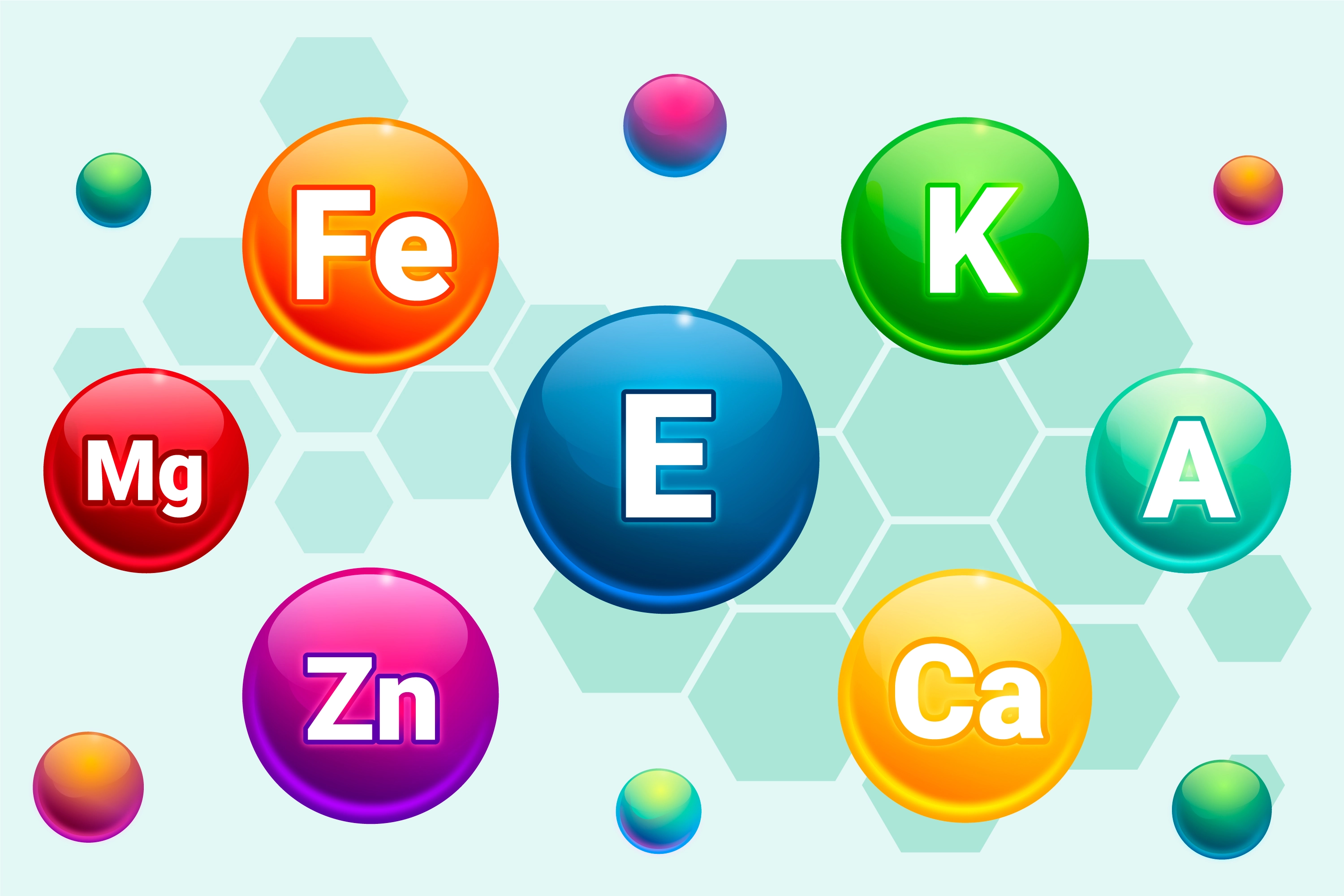Supplements for Blood Pressure in Uganda (Hypertension)
Aug 29, 2024

Did you know that one in two Ugandan children suffers from anemia, that is, nearly half of the country's children? It is but a single example of the widespread Nutritional deficiencies in our nation. The first line of defense should always be a balanced diet, but for many Ugandans, food supplements have become vital for bridging nutritional gaps and improving overall health.
Let's cut through the hype and talk straight about supplements—what they are, what they can do, and how to choose the best ones for you—before you take that capsule.
Table of contents [Show]
Food supplements, or dietary supplements, are products intended to supplement one's diet and provide essential nutrients such as vitamins, minerals, amino acids, or other substances that may be missing or insufficient in regular meals. They usually come in tablets, pills, suspensions, or liquid form

Anemia, weak immunity, stunted growth... Why are supplementsbecoming essential in Uganda?
Forget Rolex and Matoke for a second. Anemia, weak immunity, and stunted growth are quietly plaguing Ugandans, especially children. This isn't some distant health threat – it's an everyday reality for half our kids, grappling with iron deficiency. And it's just the tip of the iceberg. Vitamin A, zinc, folate—the list of nutrient gaps goes on.
Let's be honest before you rush to pills. A varied, colorful plate with meat, beans, veggies, and other foods should be the champion of our health. But soil depletion, poverty, and even our cooking habits sometimes leave invisible holes that food alone can't fill. This is where supplements step in, not as magic pills but as targeted reinforcements.
Think of it like this: your body is a team, and some players (iron, vitamins, etc.) are on the bench, weak and under-equipped. Supplements can be like exercises in training, giving those players a boost to join the game and improving the team's overall performance—energy, immunity, and even child development.
So, yes, we need supplements in Uganda. Not as a substitute for good food, but as a bridge over the nutritional gaps that hold us back. It's not a one-size-fits-all solution, but for many Ugandans, these tiny allies can be the missing piece in the puzzle toward a healthier future.

Discovering Uganda's Supplemental Power: Say goodbye to the one-size-fits-all approach. Every period of life, from youth to old age, has different nutritional requirements. These days, vitamins and herbs combine to create nutraceuticals, which are food-derived substances that have therapeutic or health benefits that help prevent and treat diseases. To determine which is best for you, think about speaking with a medical practitioner. Let's take a closer look:
Building strong bones, battling iron deficiency, and supporting brain development during formative years can be aided by targeted supplements like calcium, iron, and omega-3.
Juggling work, family, and well-being often means neglected meals. Multivitamins can become valuable allies, filling nutritional gaps caused by time constraints.
Pushing physical limits demands optimal nutrient availability. Protein powders, electrolytes, and B vitamins can support muscle recovery, energy production, and overall performance.
Folate and iron become crucial teammates during pregnancy, supporting both mother and baby's health. Calcium and vitamin D also play vital roles in building strong bones for both.
Ensuring their own nutritional needs are met alongside the demands of milk production might require additional calcium, vitamin D, and iron.
Maintaining bone health, cognitive function, and immunity becomes particularly important with age. Vitamin D, calcium, and B vitamins can become valuable partners in this endeavor.
But wait, a word of caution! Supplements are not magic pills. A balanced diet should always be the foundation of good health. Consulting a healthcare professional is key to determining if, and what kind of, supplements are right for you.
They can help you to go through the world of vitamins and minerals, ensuring you choose the right allies for your unique needs.
Remember, supplements are just one piece of the puzzle. Prioritize a healthy lifestyle, diverse local foods, and regular exercise for a truly holistic approach to well-being. Together, we can make Uganda a nation where everyone, regardless of age or stage of life, thrives with optimal health and vitality.
According to the research, Uganda's Nutrition Crisis: Alarming Research reveals 11% of children under 5 are underweight, with a deeply shocking 53% of Ugandan children suffering from anemia. Shockingly, there's a 24% rise in overweight/obesity among women aged 15–49 years.
Thus, in order to address the threat to our children's and women's health, the need to supplement increases.

In a world where nutritional deficits can inhibit growth, choosing the right supplement is essential to our health. How do we eliminate confusion and create a customized supplement program that improves our health?:
Consult a healthcare professional to identify specific nutrient deficiencies based on your unique needs and dietary habits. Don't guess—targeted action leads to better results.
Growing children, pregnant women, and elders have different nutrient priorities. Choose supplements that cater to your specific needs.
Remember: Supplements are not magic pills. A balanced diet rich in diverse local foods should always be the foundation of your health. Think matooke, beans, fresh, vegetables,and enough water—your body loves them!
Cook smart: Certain cooking methods can drain nutrients. Explore ways to preserve vitamins and minerals while preparing your meals.
Opt for supplements from reputable sources like Bf Suma, Now, Wellman, etc which are approved by the National Drug Authority. Avoid imitations that are cheap and questionable brands.
Different forms of minerals and vitamins have varying absorption rates. Consult your healthcare professional to choose the forms best suited for your body.
Don't overshoot! Excessive supplementation can be harmful. Follow recommended dosages from reliable sources.
By following these steps and prioritizing informed, personalized choices, you can unlock the true potential of supplements in your health journey. Choose wisely, stay informed, and partner with professionals – together, we can build a brighter, healthier future for ourselves and future generations in Uganda.
Using dietary supplements can affect your health, but be cautious. High doses, replacing prescribed medicines, or combining supplements can lead to side effects. For example:
Excess vitamins and minerals from fortified foods may cause harm. Exercise care during pregnancy, nursing, and with children, as many supplements lack safety testing in these groups. Report any adverse reactions to your healthcare provider or directly to the National. Drug Authority on +256 [0]417 788 124.
For your own health, it's important to ensure the quality of dietary supplements by looking for expiry dates and certifications. Good Manufacturing Practices (GMPs) were created by the FDA to ensure the identification, purity, strength, and composition of supplements, avoiding problems such as contamination or incorrect ingredients. Islam's definition of lawful, or "lawful without food taboo," should be halal certified. Periodically, supplement facilities are inspected by the FDA.
Seek independent organizations' quality assurance seals, such as those from NSF International, ConsumerLab.com, and U.S. Pharmacopeia. These denote safe contamination levels, correct labeling, and appropriate manufacture. Quality assurance in Uganda is contingent upon acceptance and testing by the National Drug Authority and the Uganda National Bureau of Standards (UNBS).
In a land where food might not be enough, supplements step in as allies, bridging nutritional gaps and unlocking healthier futures. But remember, they're not magic pills. A balanced diet, diverse local foods, and a healthy lifestyle are our champions. Choose wisely, partner with professionals, and let supplements be the missing piece, not the whole puzzle. Together, we can nourish Uganda, one plate and capsule at a time.
Found value in this article? Share it with your family and friends! Together, let's build a healthier Uganda, one family at a time. For those in need of further guidance, our live chat on the right bottom corner is available with expert consultants. Feel free to use the free consultation buttons you've seen throughout the article.
Supplements are important for addressing nutritional gaps, supporting overall health, and preventing deficiencies. They can be especially beneficial for individuals with specific dietary restrictions, health conditions, or lifestyle factors that may impact nutrient intake.
Whether supplements are a waste of money depends on individual needs and circumstances. Some individuals benefit from supplements, while others may obtain sufficient nutrients from their regular diet. Consulting with a healthcare professional can help make informed decisions.
Supplements are not medications but are meant to complement a diet by providing additional nutrients. so many nutraceuticals are confused with supplements. Medications are prescribed to treat or prevent specific medical conditions.
Some food supplements may have side effects, depending on factors like individual health and dosage. It's recommended to adhere to suggested dosages and consult with a healthcare professional if concerns arise.
Some supplements may contribute to weight gain, especially those containing calories or ingredients that affect appetite. It's important to choose supplements wisely and consider their impact on overall caloric intake.
Food supplements can be beneficial when used appropriately to address specific nutritional needs. However, it's crucial to use them wisely and under guidance to avoid potential risks.
A food supplement, or dietary supplement, is a product containing nutrients that are derived from food sources or synthesized, intended to supplement the diet and provide additional nutritional value.
Yes, many supplements can be taken without food. However, certain supplements may be better absorbed when taken with meals. Always follow the product instructions or seek advice from a healthcare professional.
Some individuals may experience side effects from food supplements. It varies based on the supplement and individual health. It's essential to follow the recommended dosage and consult a healthcare professional if you have concerns.
Nutritional supplements can offer benefits by filling nutritional gaps, supporting overall health, and addressing specific deficiencies. They may contribute to improved energy levels, immune function, and overall well-being.
Food supplements, or dietary supplements, are products intended to supplement one's diet and provide essential nutrients such as vitamins, minerals, amino acids, or other substances that may be missing or insufficient in regular meals. They usually come in tablets, pills, suspensions, or liquid form.